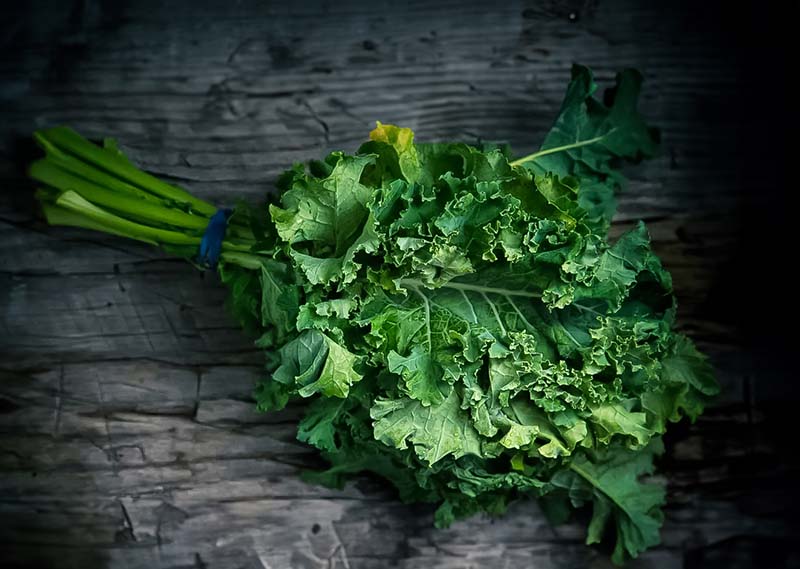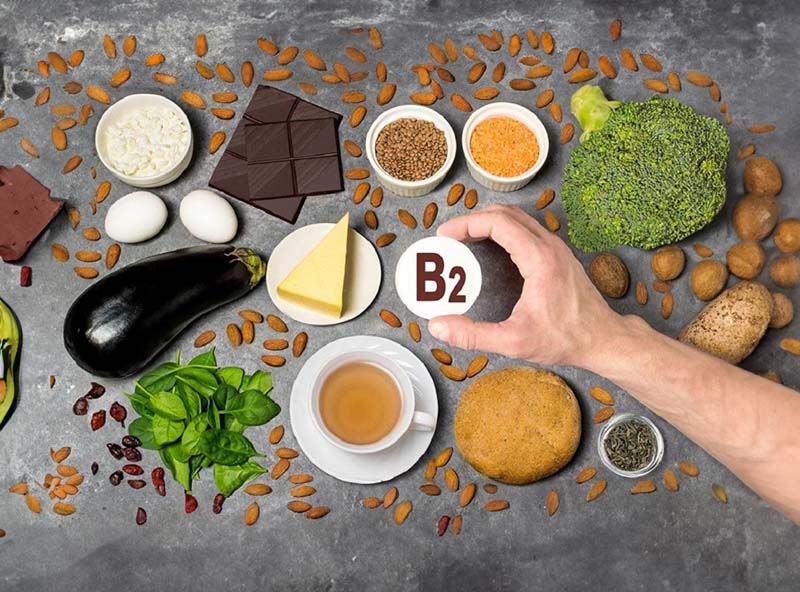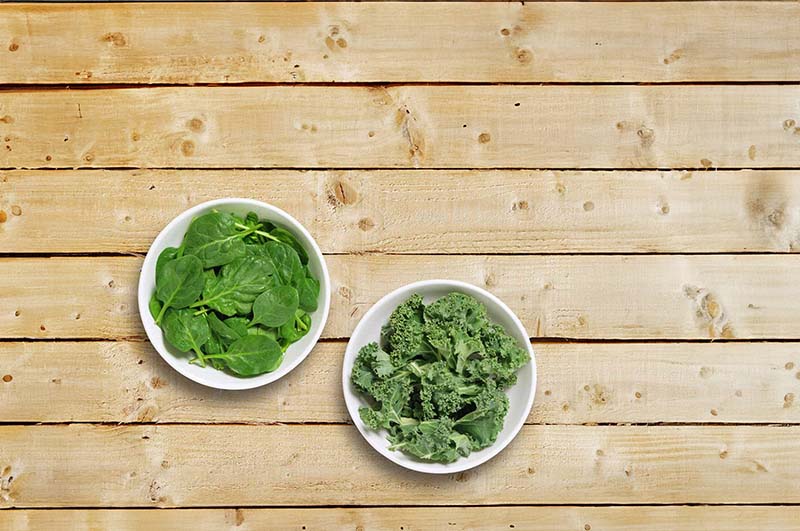Exploring the role of superfoods in weight management, this article focuses on a key question: “Does Kale Make You Lose Weight?” In the pursuit of a healthier and leaner lifestyle, kale has gained immense popularity for its nutritional prowess and potential weight loss benefits.
In this article, we’ll explore the specific qualities of kale that make it a popular choice for those looking to shed pounds. Additionally, we will provide practical advice on how to incorporate this nutrient-rich leafy green into your diet effectively, helping you advance towards a healthier and slimmer version of yourself.
Read more
- Does Oatmeal Help with Weight Loss? Unlock the Secrets!.
- Are Oysters Good for Weight Loss? Health Benefits of Oysters.
- Is Pumpkin Good for Weight Loss? Nutritional Value of Pumpkin.

Does Kale Help You Lose Weight?
Absolutely, kale is a fantastic addition to your weight loss journey. This nutrient-packed leafy green is a true ally in your quest for a healthier, slimmer you. Here’s why:
- Low in Calories: A 100g serving of kale contains a mere 35 calories, which is exceptionally low. This allows for generous portions without high calorie intake.
- High in Fiber: Kale is rich in dietary fiber, a crucial component for weight management. Fiber not only aids in digestion but also helps you feel full and satisfied, reducing the temptation to overeat. It can be a game-changer when it comes to portion control.
- Nutrient Powerhouse: Kale offers more than weight loss benefits; it’s a powerhouse of essential nutrients. It’s loaded with essential vitamins like vitamin K, vitamin C, and vitamin A, along with minerals and antioxidants. These nutrients support overall health while you work on your weight loss goals.
- Versatile and Delicious: Kale is incredibly versatile. You can enjoy it raw in salads, sauté it as a side dish, blend it into smoothies, or incorporate it into various recipes. Its adaptability makes it easy to include in your daily diet.
Notes:
- To maximize kale’s benefits for weight loss, avoid high-calorie dressings or cooking with heavy oils. Keep preparations light to maximize its benefits.
- While kale can be a valuable addition to your diet, remember that no single food can guarantee weight loss. It’s essential to maintain a balanced diet and combine it with regular physical activity for effective results.
Nutritional Information of Kale
Kale is a highly nutritious cruciferous vegetable that offers an array of health benefits. Here’s a breakdown of its nutritional information per cup (21 grams) of raw kale:
- Calories: A mere 7 calories, making it an excellent choice for calorie-conscious individuals.
- Carbohydrates: Just 1 gram of carbohydrates, making kale a low-carb option for those watching their carb intake.
- Dietary Fiber: Kale provides 1 gram of dietary fiber, which aids in digestion and promotes a feeling of fullness.
- Vitamin K: An impressive 68% of the Daily Value (DV) of vitamin K. This vitamin is crucial for blood clotting and bone health.
- Vitamin C: Kale offers 22% of the DV of vitamin C, a potent antioxidant that supports the immune system and skin health.
- Manganese: You’ll get 8% of the DV of manganese, an essential mineral that plays a role in bone formation and metabolism.
- Vitamin A: Kale contains 6% of the DV of vitamin A, important for vision and skin health.
- Riboflavin: It provides 5% of the DV of riboflavin (vitamin B2), which helps in energy production and cellular function.
- Calcium: You’ll get 4% of the DV of calcium, which is crucial for maintaining strong bones and teeth.
In addition to these key nutrients, kale also contains smaller amounts of folate, vitamin B6, potassium, magnesium, and iron, which contribute to its overall nutritional value.

Kale Benefits for Weight Loss
Kale offers a plethora of benefits that make it an excellent choice for individuals looking to shed some pounds. Here’s why kale is a valuable addition to your weight loss journey:
Low-calorie and Nutrient-packed
Kale is a low-calorie powerhouse. A cup of chopped kale contains only about 33 calories, allowing you to enjoy generous portions without worrying about excessive calorie intake. This is particularly beneficial for those who are conscious of their daily calorie consumption. Furthermore, kale is packed with essential vitamins such as vitamin K, vitamin A, and vitamin C, along with antioxidants, ensuring you receive optimal nutrition even on a calorie-restricted diet.
Abundant in Fiber
The high dietary fiber content in kale is a game-changer when it comes to weight loss. Fiber promotes a feeling of fullness, curbing your appetite and reducing the likelihood of overeating.
Moreover, it aids in digestion and helps regulate blood sugar levels, preventing sudden spikes and crashes that can lead to unhealthy snack cravings. Incorporating kale into your meals can be a valuable tool in managing your portion sizes.
Metabolism Boost
Kale contributes to a natural boost in metabolism, primarily due to its rich iron content. Iron supports the production of red blood cells, which are responsible for transporting oxygen throughout the body.
A well-oxygenated body functions more efficiently, which is crucial for maintaining a healthy metabolism. An efficient metabolism is key to effective weight management, as it helps you burn calories more effectively.

Hydration Promotion
Kale is a hydrating vegetable, consisting of approximately 89% water. Staying properly hydrated is essential when working towards weight loss goals.
Adequate hydration supports metabolism and ensures that your body functions optimally. Kale can help you meet your hydration needs while benefiting from its other weight-loss-friendly properties.
Additional Health Benefits of Kale
Beyond weight loss, kale’s numerous health benefits underscore its superfood status. Here are some notable advantages of incorporating kale into your diet:
Cancer Prevention
Kale is packed with compounds that have been associated with cancer prevention. Sulforaphane, found in kale, has been shown to inhibit the formation of cancer at the molecular level.
Additionally, kale contains indole-3-carbinol, another substance believed to help prevent cancer. While human evidence is mixed, studies suggest that cruciferous vegetables, including kale, may lower the risk of several types of cancer.
Skin Health Enhancement
Kale’s rich vitamin content, including vitamins C, E, and K, can do wonders for your skin. Vitamin C, a potent antioxidant, brightens your skin’s appearance, helps reduce fine lines, and combats free radicals.
Vitamin K plays a role in skin health and may contribute to a younger and healthier-looking complexion. Including kale in your diet can support your skin’s overall vitality.

Blood Sugar Regulation
Kale has rightfully earned its “superfood” status, and one reason is its potential to help regulate blood sugar levels. It contains various compounds, including fiber and flavonoid antioxidants, that may contribute to this effect.
Studies have shown that consuming kale with a high-carb meal can significantly decrease post-meal blood sugar levels. The flavonoid antioxidants present in kale, such as quercetin and kaempferol, possess strong blood sugar-lowering and insulin-sensitizing properties.
Potential Health Risks
While kale offers numerous health benefits, it’s important to be aware of potential health risks associated with its consumption. Here are some considerations:
Thyroid Issues
Kale is a cruciferous vegetable and contains compounds known as goitrogens, which can potentially interfere with thyroid function. For individuals with existing thyroid problems, particularly hypothyroidism, excessive consumption of raw kale may pose a risk. Cooking kale can help reduce goitrogen content, making it a safer option for those with thyroid issues. If you have thyroid concerns, consult with a healthcare professional for personalized dietary guidance.
Blood Clotting and Medications
Kale’s high vitamin K content can potentially interfere with blood clotting. While vitamin K is essential for normal blood clotting, it may counteract the effects of certain blood-thinning medications, such as Warfarin (Coumadin). If you are taking blood-thinning medications or have blood clotting issues, it’s crucial to maintain consistent vitamin K intake and discuss any dietary changes with your healthcare provider to ensure your medication’s effectiveness.
Digestive Issues
Kale is a fiber-rich vegetable, and for some individuals, consuming large quantities of kale, especially raw, can potentially lead to digestive discomfort such as stomach pain, constipation, or bloating. To minimize these effects, gradually introduce kale into your diet, and consider cooking it to reduce its fiber content.
Kale vs. Spinach: A Nutritional Comparison
Kale and spinach are both nutritious leafy greens, but they have some differences in their nutritional content. Here’s a comparison between kale and spinach:
Vitamin A
- Spinach: 2,810 IU of vitamin A per cup
- Kale: 1,010 IU of vitamin A per cup
- Spinach contains more vitamin A compared to kale, making it a better choice for eye health and immune function.
Fiber and Protein Content
- Spinach: 5 grams of protein per cup (cooked), 0.7 grams of fiber per cup (raw)
- Kale: 2.9 grams of protein per cup (cooked), 0.9 grams of fiber per cup (raw)
Spinach has slightly more protein and fiber than kale per serving. However, when considering protein per calorie, kale offers more.
Vitamin C and Vitamin K
Vitamin K
- Spinach: 145 mcg of vitamin K per cup (raw)
- Kale: 82 mcg of vitamin K per cup (raw)
Spinach contains more vitamin K1 than kale, which is important for blood clotting and bone health.
Vitamin C
- Spinach: 8.5 mg of vitamin C per cup (raw)
- Kale: 20 mg of vitamin C per cup (raw)
Kale is the winner in terms of vitamin C content, which is an antioxidant that supports immune health and cell protection.
Calories
- Spinach: Approximately 7 calories per cup (raw)
- Kale: Approximately 9 calories per cup (raw)
Both kale and spinach are low-calorie vegetables, but kale has slightly more calories per cup compared to spinach.

Note When Using Kale
- Enhance nutrient absorption: Consuming kale with healthy fats like olive oil, avocado, or almond butter can increase the absorption of fat-soluble carotenoids in the body.
- Choose organic and wash: Kale is known to be on the list of foods often contaminated with pesticides. Opt for organically produced kale, and always wash it thoroughly before use.
Conclusion
In summary, addressing the question “Does Kale Make You Lose Weight?” reveals kale as a formidable player in the weight loss game. Its low-calorie yet nutrient-dense profile makes it an ideal choice for those aiming to slim down while maintaining a healthy diet. We encourage you to share your experiences with incorporating kale into your weight loss journey and the impact it has had on your overall health.
Don’t miss out on further health and wellness insights, including discussions around questions like “Does Kale Make You Lose Weight?”, on the Sure Life Health blog. Our commitment is to equip you with the knowledge and tools necessary for a healthier, more fulfilled life, with kale being one of the many nutritious allies on this journey.
Professor Gaye Cunnane, PhD, MB, FRCPI
As the Director of Health and Wellbeing at RCPI, Professor Gaye Cunnane is at the helm of initiatives aimed at enhancing the health and well-being of RCPI Trainers and Trainees. Her role extends beyond administration; she is also a respected clinical professor of rheumatology and a consultant rheumatologist at Trinity College Dublin (TCD) and St James’s Hospital. Prof. Cunnane’s medical journey began at TCD, where she graduated from medical school, and her path has been marked by both clinical and academic excellence.
After completing her basic clinical training in medicine, she embarked on PhD studies at University College Dublin and St Vincent’s University Hospital. Her research during this period was focused on prognostic markers in early inflammatory arthritis, a project that saw her collaborating with esteemed universities across Europe, including in Switzerland, The Netherlands, the UK, and Sweden.
Prof. Cunnane’s career took her to the University of California, San Francisco, where she spent three years delving into research on new treatments for lupus. Her academic prowess led her to the University of Leeds in 2001 as a senior lecturer, before returning to Ireland in 2003 to assume her current roles. She has also served as the National Specialty Director for Rheumatology training in Ireland, Programme Director for Basic Specialist Training with RCPI, and as a past President of the Irish Society for Rheumatology.
PUBLISHED ARTICLES
“Rheumatic disease differentiation using immunoglobulin G sugar printing by high-density electrophoresis”: Published in The Journal of Rheumatology, this study reflects her in-depth investigation into rheumatic diseases.
“Benefits of exercise in patients with rheumatoid arthritis: a randomized controlled trial”: This research work, highlighting the positive impact of exercise on rheumatoid arthritis, underscores Prof. Cunnane’s dedication to practical, patient-centered research.
Additionally, Prof. Cunnane has made notable contributions to the Annals of the Rheumatic Diseases, discussing early referral, diagnosis, and treatment of rheumatoid arthritis. She has also been involved in a study on the NCBI platform investigating exercise benefits in rheumatoid arthritis patients.
Professor Gaye Cunnane’s career is a testament to her commitment to improving patient outcomes in rheumatology through rigorous research, clinical excellence, and dedicated teaching. Her work continues to influence the field of rheumatology, both in Ireland and internationally.

